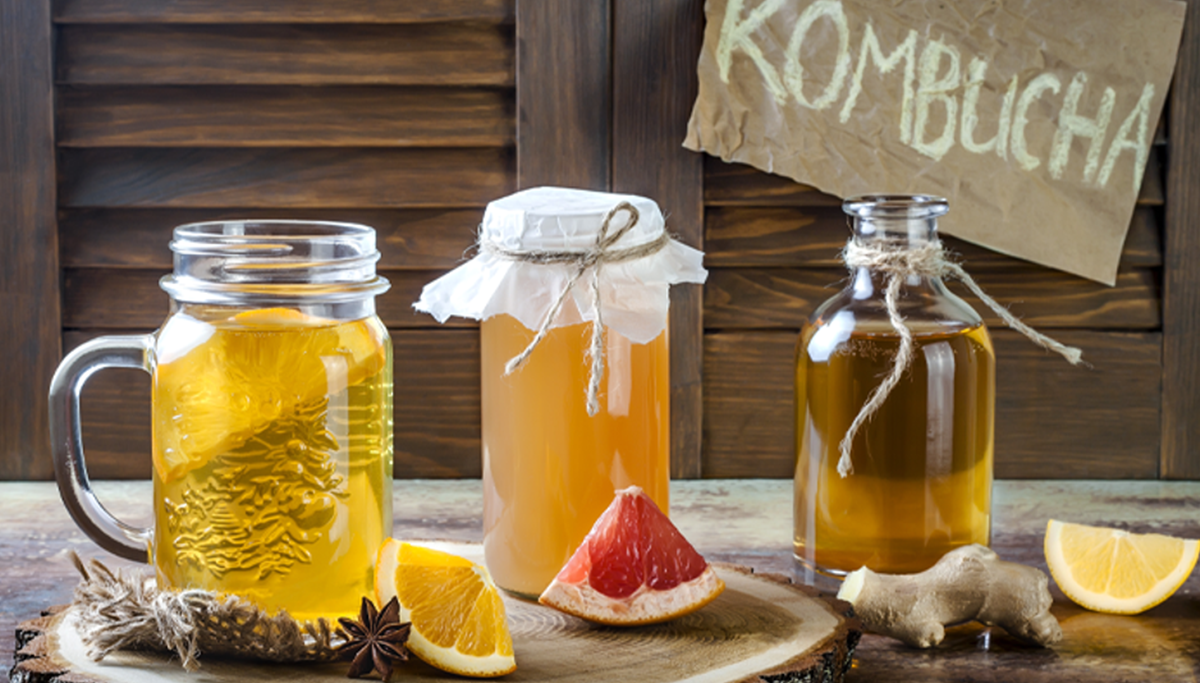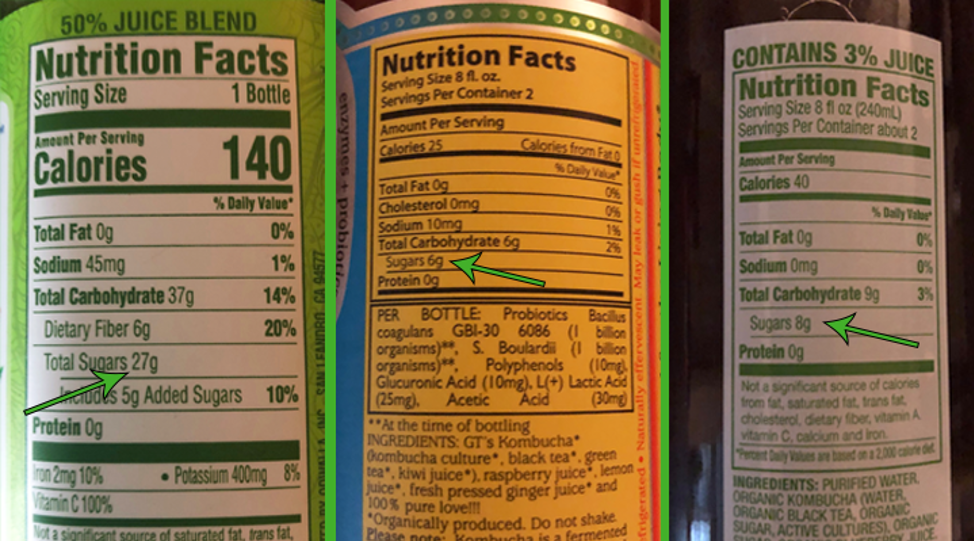The buzz around kombucha tea has been almost non-stop. But can this fermented beverage damage your teeth? It’s a great question. While there’s been no shortage of hype for its health benefits, the effects of kombucha on teeth have been less publicized.
Health drink?
Marketed as a health drink, kombucha can potentially kill harmful bacteria and improve digestive health. It also contains antioxidants and is a potential source of probiotics. However, most of kombucha’s possible health benefits come with disclaimers, words like “can” and “may.” So while kombucha may provide the benefits of green tea, may kill bacteria, and may reduce the risk of heart disease, there are few actual studies and little scientific evidence to back these claims. More scientific proof is needed before we can say that these benefits are real.
So many choices
Many companies have jumped on the kombucha bandwagon and no kombucha drink is created the same. Different flavors, varying ingredients, and the basic process of creating kombucha fermented drinks can change the impact the drink has on our body and mouth. Two bottles of kombucha can be as different as milk and cola when it comes to their acidity and ingredients.
What makes Kombucha unique?
Kombucha’s high acidity gives it some perceived health benefits. However, its pH level and sugar content vary greatly from bottle to bottle and company to company. That’s why it’s important to read the labels.
The primary ingredients of traditional kombucha are water, tea leaves, sugar, and “SCOBY” – the “Symbiotic Colony of Bacteria and Yeast” – which is key to the fermentation process. The finished product melds tea flavors with a slight vinegary taste. Because vinegar isn’t everyone’s cup of tea (so to speak), popular brands add sugar, artificial flavoring, and/or juices that also contain sugar. Some companies keep the natural flavor, making their products healthier options.
Sugar and Kombucha
Sugar content in kombucha can range from 2 to 30 grams per serving, exceeding for some people the recommended intake of sugar for an entire day. The bacteria in our mouths feed on sugar. Sugar feeds the plaque that forms on our teeth and leads to oral health issues ranging from cavities to gum disease.
Challenge yourself to make more informed decisions about what you’re consuming. Read the ingredient labels of kombucha drinks and pay close attention to the sugar content.
Kombucha, acidity, and tooth decay
Kombucha’s combination of high sugar and high acidity can affect our smiles. The pH levels of most kombucha drinks range from 2.5 to 3.5. For reference, white vinegar is around 2.4.
Enamel erosion and tooth decay is much more likely when we consume acidic beverages like kombucha. According to Dr. Joe Dill, DDS and VP of Dental Science & Network Strategy for Delta Dental, “Kombucha is more acidic than water and can wear away the white enamel layer of one’s teeth. This makes them sensitive and more prone to decay. Over time, it can make your teeth appear brown, since this exposes the darker dentin under the enamel.” Like coffee and tea, kombucha can stain your teeth.
Is organic Kombucha healthier?
“Organic” doesn’t necessarily mean a product is healthy for our bodies or teeth; even organic kombucha goes through a fair amount of processing. Kombucha manufacturers often pasteurize the beverage to keep it more shelf-stable, killing the live bacteria in the process and destroying any probiotic benefits. Regardless of how the kombucha is made, its high levels of acidity and sugar remain.
Stop or not?
Should you stop drinking kombucha? Probably not. But you can fight any negative effects with a few easy tips:
- Know your brands. Read labels for ingredients and sugar content.
- Drink it fast. Don’t sip on kombucha over long periods of time. This gives the bacteria in your mouth more time to create problems for your teeth and gums.
- Consume with food. Eating healthy food low in sugar can help remove some of the acid and sugars from your mouth before the bacteria has a chance to work.
- Drink water too. Drinking water can wash away much of the acid and sugars in your mouth. Even a quick rinsing with water can help.
If you read labels, work on combatting the drink’s negative effects on your mouth, brush your teeth twice per day, and floss at least once a day, kombucha can be safely added to your list of favorite drinks.
As Dr. Dill notes, “Kombucha is loaded with probiotics that are important for digestion and a healthy digestive tract. As with all good things, moderation is the key.”
To learn more about some healthy food options, lifestyle choices, and recipes for good oral health, click here to visit our blog.


